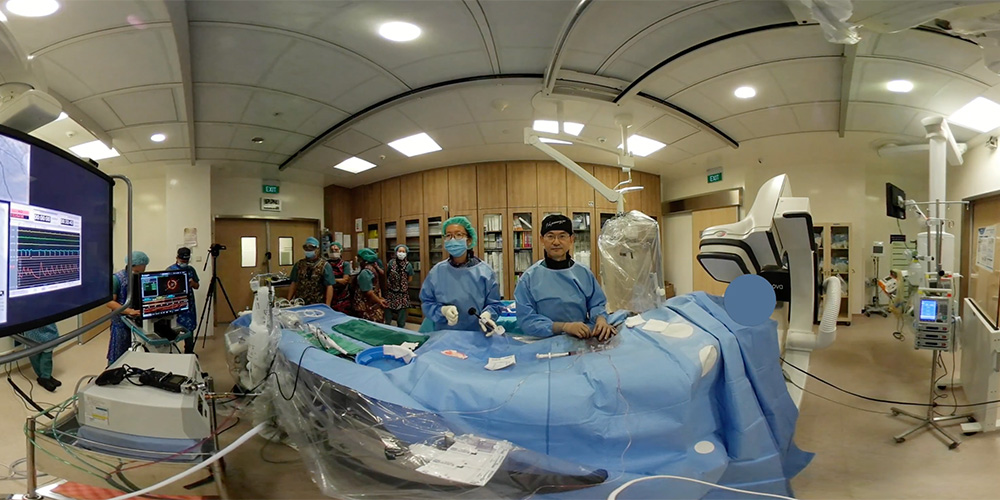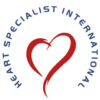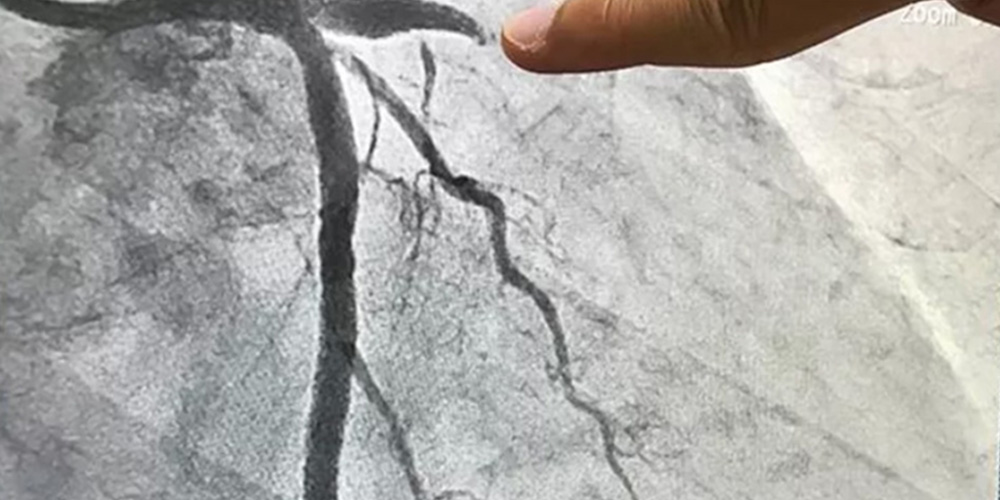Coronary angiogram or cardiac catheterization is a procedure performed to visualize the heart arteries supplying the heart muscle. This provides an accurate assessment of the state of your coronary arteries and the percentage of blockage if present. It also forms the road map to guide subsequent management be it medical treatment, coronary angioplasty or coronary artery bypass surgery.
Coronary angiogram is done under local anaesthetics. Most of the time the procedure is carried out through the right wrist. A long soft tube called catheter is inserted through the wrist pulse and placed near the heart under special X-ray guidance. Contrast material (commonly known as a dye) is then selectively injected to the coronary arteries and a short video clip is taken to record the findings.
If indicated another procedure called left ventriculogram may be performed during the same session. The catheter may be placed inside the left ventricle and around 20 to 30cc of contrast is injected. This captures the pumping action of the heart and is useful to assess the strength of the contraction and detect sign of valves malfunction.
The procedure takes around 10 to 15mins.

FAQ
- Does it hurt a lot?
- Your wrist or groin is numbed with local anaesthetics which can be slightly uncomfortable. It is important that you tell the doctor if you are still experiencing discomfort. A mild sedation can be given and to help ease the discomfort.
- Do I have to fast before angiogram and do I take my usual dose of medication?
- You should be nil by mouth for at least 2 hours prior to an angiogram. It is usually recommended for you to take all your routine medication with a small glass of water. However, certain drug like metformin (for diabetes therapy) should be stopped at least 24 hours prior to the procedure. Please check with your doctor in more details.
- If the doctor finds a blockage in my heart artery during the angiogram, will angioplasty be carried out straightaway to clear the blockage?
- Most patient would prefer to have the heart condition rectify immediately upon diagnosis. You will usually be told about the angiogram findings while still on the treatment table. Your family member will also be informed about the findings too. If all parties are agreeable to proceed to angioplasty with prior discussion and consent already taken during initial consultation, then your cardiologist will proceed to unblock the narrowed vessels on the same session. However, if the disease pattern is complex and open-heart surgery may be an alternative option, your doctor may choose to stop the procedure instead. This will allow for more time to discuss the important treatment strategies with you and your family. Your cardiologist may also seek an opinion from a heart surgeon to explain the pros and cons of bypass operation thus allow you to make an informed decision on the treatment.
- Do I have to stay overnight after the angiogram?
- This is usually performed as a day case procedure. In the absence of any complications, you should be able to go home 6 hours after the angiogram. You should be accompanied home with a responsible adult. You should not drive yourself home.






